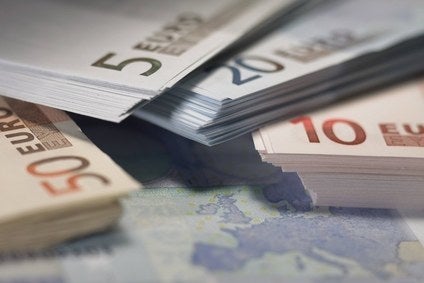
Fiat Chrysler Automotive's subsidiary in Luxembourg, Fiat Chrysler Finance Europe, (FCF) is facing refunding tens of millions of euros after the European Commission ruled that selective tax advantages for the automaker in Luxembourg (and coffee house chain Starbucks in the Netherlands) were "illegal under EU state aid rules".
"The European Commission has decided that Luxembourg and the Netherlands have granted selective tax advantages to Fiat Finance and Trade and Starbucks, respectively. These are illegal under EU state aid rules," the commission said in a statement.

Discover B2B Marketing That Performs
Combine business intelligence and editorial excellence to reach engaged professionals across 36 leading media platforms.
Commissioner Margrethe Vestager, in charge of competition policy, said: "Tax rulings that artificially reduce a company's tax burden are not in line with EU state aid rules. They are illegal. I hope that, with today's decisions, this message will be heard by member state governments and companies alike. All companies, big or small, multinational or not, should pay their fair share of tax."
The commission had been investigating the two companies since June 2014 and said it had decided Luxembourg had granted selective tax advantages to Fiat's financing company. A tax ruling issued by the respective national tax authority artificially lowered the tax paid by the company.
"Tax rulings as such are perfectly legal," the commission said in its statement. "They are comfort letters issued by tax authorities to give a company clarity on how its corporate tax will be calculated or on the use of special tax provisions. However, the two tax rulings under investigation endorsed artificial and complex methods to establish taxable profits for the companies. They do not reflect economic reality."
The commission said this was done, in particular, by setting prices for goods and services sold between companies of the Fiat group (so-called 'transfer prices') "that do not correspond to market conditions". As a result, "…Fiat's financing company only paid taxes on underestimated profits".
This, the commission said, is illegal under EU state aid rules. "Tax rulings cannot use methodologies, no matter how complex, to establish transfer prices with no economic justification and which unduly shift profits to reduce the taxes paid by the company. It would give that company an unfair competitive advantage over other companies (typically SMEs) that are taxed on their actual profits because they pay market prices for the goods and services they use.
"Therefore, the commission has ordered Luxembourg and the Netherlands to recover the unpaid tax from Fiat… in order to remove the unfair competitive advantage [enjoyed] and to restore equal treatment with other companies in similar situations. The amounts to recover are EUR20- EUR30m. It also means that [the automaker] can no longer continue to benefit from the advantageous tax treatment granted by these tax rulings."
The commission said Fiat Finance and Trade, based in Luxembourg, provides financial services, such as intra-group loans, to other Fiat group car companies, and engages in many different transactions with Fiat group companies in Europe.
"The commission's investigation showed that a tax ruling issued by the Luxembourg authorities in 2012 gave a selective advantage to Fiat Finance and Trade, which has unduly reduced its tax burden since 2012 by EUR20- EUR30m.
The commission added that the precise amount of tax to be recovered must now be determined by the Luxembourg and Dutch tax authorities on the basis of the methodology established in the commission's decisions.
In a statement issued on Tuesday (20 October), FCA insisted it did not receive any state aid from Luxembourg.
"FCA believes it provided solid explanations to the Commission as to the reasons why the APA entered into by FCF with Luxemburg did not result in any state aid," the company said.
"The intent of the APA was solely to clarify the transfer pricing rules to be applied by FCF to financing activities to affiliates. FCF sought the APA for the sole purpose of obtaining legal certainty, through an application process governed by a clear legal framework. The relevant application was based on a fully documented transfer pricing analysis carried out pursuant to well recognised methodologies. FCF never sought any derogation from the general law through exemptions and reliefs not generally available under the Luxembourg tax system, and the APA did not grant to FCF any advantage unavailable to comparable Luxembourg tax payers. The APA did not result in any taxable base erosion or double non-taxation for the FCA Group, given that any increase in the taxable income of FCF in Luxemburg would have led to greater deductions in the countries of residence of the group companies which paid interest to FCF."
FCA said it had has already stated "any potential increase in the taxable income of FFT would be immaterial to the FCA Group's reported results and would also result in compensating adjustments in other tax jurisdictions that would need to be agreed between the tax authorities of Luxembourg and the tax authorities of the other European countries involved in the intra-group financing arrangements".
"FCA therefore confirms that FCF did not receive any state aid and that any finding in this matter would be immaterial to the FCA Group's reported results."






